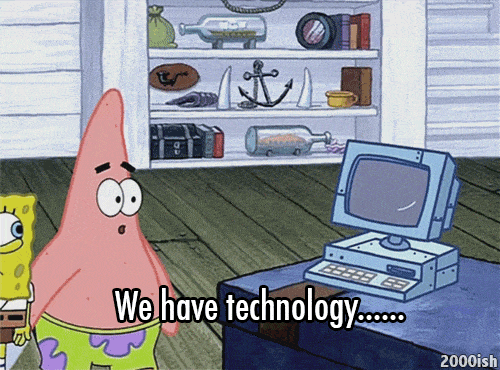
Gaining buy-in and commitment from your executive leadership team for CRM implementation is critical to whether the investment will succeed. A lack of leadership support is one of the top 10 reasons that CRMs fail.
This blog outlines why that buy-in is so necessary, details what CRM implementation stages need leadership support, and provides tips for gaining that buy-in.
Why is executive buy-in essential for CRM Implementation?
Many factors determine the effectiveness of a CRM implementation and the overall success of that CRM in the future. One of the most critical factors is gaining buy-in and commitment from your executive leadership team.
First and foremost, leadership buy-in is necessary to begin the CRM implementation process. Your C-suite members will be essential drivers (or roadblocks) when it comes to setting budgets, detailing project timelines, and signing agreements with CRM vendors.

Additionally, your employees look to executives to determine and communicate the organization’s strategic goals and visions. When your executives are willing to vouch for your new CRM system and share CRM implementation-related information, your chances of a successful rollout are much higher.
Your end-users will mimic the attitude and views of your leadership team. If your executives don’t support your new CRM, your end-users surely won’t be either. Sales reps, service reps, and all other CRM users will put more effort into a successful adoption if they know it is vital to your leadership team.
A CRM system should be an integral part of your business — it will improve and support internal processes, strategies, and culture. Your executives need to communicate this so that end-users don’t just view it as another technology they need to learn.
What does Executive Buy-In Look Like for CRMs?
Many organizations make the mistake of thinking that leadership buy-in is only necessary to sign the contract and get the budget needed for a CRM Implementation. However, gaining executive support across the entire CRM process is crucial for long-term success and adoption.
Executive Support during the Purchasing Phase
You should include at least one executive from your organization in the beginning stages of searching for, evaluating, and comparing different CRM vendors. They will help bring new ideas to the table that sales leaders, marketing leaders, IT leaders, and support leaders may not have considered. They will provide input on which CRM would best help achieve company-wide goals and which vendor aligns best with the overall company vision.
If you move to implementation with leadership already on your side, you will face fewer roadblocks, and you will be able to plan an implementation project more quickly. Plus, they will be better versed in handling internal communications regarding the CRM.
Executive Support during CRM Implementation
During the implementation stage, leadership has a significant impact on how end-users view the new system and how hard they work to adopt it. Keeping senior leadership at the forefront of company CRM communications is a simple way to let employees know that the CRM is a strategic investment versus just another new technology that their department leader has implemented.

Your leadership team will also provide valuable insight into how to set up your platform and share information about the types of reports and dashboards that should be set up.
Executive Buy-In for ongoing CRM Support and Maintenance
Setting up your CRM for success doesn’t stop after implementation. CRM systems require ongoing support and maintenance to stay up-to-date with new technology releases, additional third-party integrations, and updated business processes.
It is essential to gain leadership approval for your CRM’s ongoing support budget if you want it to continue providing value to your organization. Whether you plan to hire an in-house CRM administrator or a consulting agency to handle the work for you, you must have leadership buy-in and approval of the budget to support continual CRM optimization.
Tips to Gain Executive Leadership Buy-In and Support for your CRM
Based on our research and years of experience helping organizations implement new CRM systems, we have compiled a brief list of tips to help you gain leadership buy-in and commitment at your organization.
1. Give your executive leadership team specific tasks to accomplish during each phase of your CRM implementation.
This helps in a few ways. First, it is an easy way to determine whether or not your executives are bought in. Are they struggling to accomplish tasks in the early stages like searching and selection? If so, they will likely continue to lack commitment as you progress further down the project.
Second, by making sure your leaders are engaged throughout the process, you make them feel like they have a more significant stake in the implementation’s success or failure.
2. Set realistic expectations about the resources needed for a successful CRM Implementation and ongoing CRM maintenance.
Executives know that CRM systems are a considerable investment, but they should also understand the value of a well-implemented system. It would help if you were direct and straightforward when discussing and budgeting the CRM technology’s costs, its implementation, and its ongoing maintenance and training.
You should help executives gain a complete picture of how much the entire process is going to cost. This way, there are no surprises (and therefore roadblocks) as you progress down the project timeline.
3. Set realistic expectations about when they can expect to see benefits provided by the CRM
If you’ve done your job well, your executive team will know what value your new CRM system will bring to the organization. If you’ve done a great job, they’ll also know when to expect to see that value. Don’t make the mistake of overpromising. Until you have your end-users trained, your processes and automation set up, additional apps integrated, and much more, you won’t see the full benefits of your new system.
If executives are expecting results sooner than they see them, this could cause severe issues for the system’s ongoing success.
Conclusion
Working with your executive leadership team throughout the entire CRM planning process is essential for CRM success. Keeping them involved will help you gain buy-in for the CRM project and budget and will improve end-user adoption of your new strategic system.
Looking for more information on CRM management or implementation? Book a meeting with our certified CRM Experts!